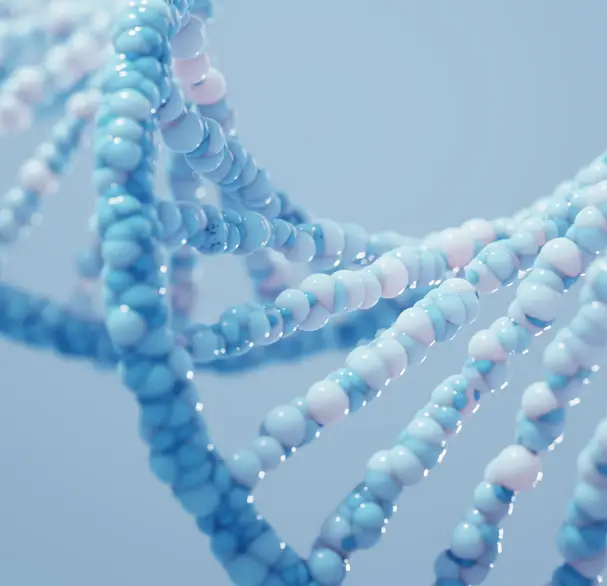Can immunotherapy help prevent cancer for those with Lynch syndrome? Discover what the Nous-209 clinical trial reveals about the future of personalized cancer prevention.
Living with Lynch syndrome means navigating a world full of proactive decisions—regular screenings, specialist appointments, and staying on top of the latest in cancer prevention. One area that’s been gaining momentum, and could offer meaningful new options for LS patients, is immunotherapy. But what exactly is it, and how could it fit into the future of Lynch syndrome care?
In this post, we’ll walk through the basics of immunotherapy, why it’s showing promise for people with LS, and what the Nous-209, a recent clinical trial, revealed about the potential of this personalized approach to cancer treatment.
What Is Immunotherapy?
Immunotherapy is a type of cancer treatment that helps your own immune system find and fight cancer. Unlike chemotherapy, which targets fast-dividing cells (both healthy and cancerous), immunotherapy trains your immune system to detect what’s harmful—like tumors—and attack those cells specifically.
There are different types of immunotherapy, including immune checkpoint inhibitors, monoclonal antibodies, and cancer vaccines. What they all share is a common goal: to empower your immune system to do what it’s already designed to do—but better.
For people with certain types of cancers, immunotherapy has already become a standard part of care. And for those with Lynch syndrome, there’s a growing body of research that shows it may be especially effective.
Why Immunotherapy Matters for People with Lynch Syndrome
Lynch syndrome is caused by inherited mutations in genes that help repair DNA. When those genes don’t work properly, cells accumulate mutations faster—and that increases the risk of several cancers, including colorectal, endometrial, ovarian, and others.
READ MORE: What is Lynch Syndrome & How Can It Impact My Life?
But here’s where it gets interesting: Because LS-related tumors tend to have a lot of genetic mutations, they also tend to produce abnormal proteins (called neoantigens) that your immune system can recognize more easily. This makes tumors in LS patients especially “visible” to the immune system—and that visibility could make immunotherapy more effective. In fact, some of the immunotherapies already approved for “MSI-high” cancers (a common feature in LS tumors) work well, in part, because they leverage this unique genetic environment.
Nous-209
One of the more exciting developments in this space is a vaccine called Nous-209. Unlike a flu shot or traditional vaccine, cancer vaccines are designed to train the immune system to recognize specific markers found only on cancer cells.
Nous-209 specifically targets neoantigens shared across many MSI-high tumors, including those found in Lynch syndrome-related cancers. In other words, it’s a personalized approach designed to help the immune system spot and destroy cancer cells before they grow or spread.
So, how does it work?
Nous-209 is given alongside another type of immunotherapy called a checkpoint inhibitor—which removes the “brakes” on your immune system, allowing it to act more aggressively against cancer. The idea is that the vaccine teaches the immune system what to look for, and the checkpoint inhibitor gives it the green light to act.
What the Nous-209 Trial Showed
A recent phase Ib/II clinical trial of Nous-209 tested this approach in patients with advanced MSI-high cancers, including many with LS. The goals were to test safety, immune response, and whether the combination could help control the disease.
Here’s what they found:
- Safety: The vaccine was well tolerated, with no serious or unexpected side effects.
- Immune activation: Patients developed strong T-cell responses to the neoantigens—meaning their immune systems were responding to the vaccine as intended.
- Clinical benefit: Many patients saw their cancer stabilize or shrink when Nous-209 was paired with checkpoint inhibitor therapy.
These are early results, but they’re promising—especially for a population that faces a lifelong, elevated risk of multiple cancers. While more trials are needed to confirm long-term benefits, this study suggests that personalized immunotherapy may one day become part of the standard toolkit for LS care.
What This Means for You and Your Family
If you or a loved one lives with Lynch syndrome, these kinds of developments can feel both exciting and overwhelming. What does this mean for your care today? Should you be asking your doctor about immunotherapy? Here’s what you need to know:
- This is not yet a standard treatment for early-stage cancer or prevention in LS patients, but research is moving in that direction.
- If you have an MSI-high cancer diagnosis, you may already be eligible for certain immunotherapies. These are approved by the FDA and covered by many insurance plans.
- If you’re in a watch-and-wait stage or are managing risk through surveillance, these developments are something to watch—not a reason to change your current care plan.
As always, it’s important to talk to a genetic counselor, oncologist, or LS specialist who understands the latest options and how they apply to your specific case.
READ MORE: An Essential Guide to Lynch Syndrome for Patients & Families
Staying Informed and Empowered
At Lynsight, we believe that knowledge is a form of self-advocacy. While immunotherapy won’t replace regular colonoscopies or other surveillance tools anytime soon, it’s an area of medicine that holds real potential—especially for people with a known genetic predisposition like LS.
Whether you’re newly diagnosed or have been living with Lynch syndrome for years, staying up to date on clinical trials and emerging treatments can help you have more informed conversations with your healthcare team.
Final Thoughts
Immunotherapy—especially personalized cancer vaccines like Nous-209—is an exciting shift in how we think about cancer prevention and treatment for people with Lynch syndrome. While it’s not yet a part of standard early-care protocols, research is moving fast, and the future looks hopeful.
Knowledge is power. Explore more insights on Lynch syndrome, inherited cancer risk, and proactive detection options here.


